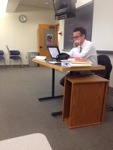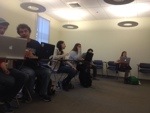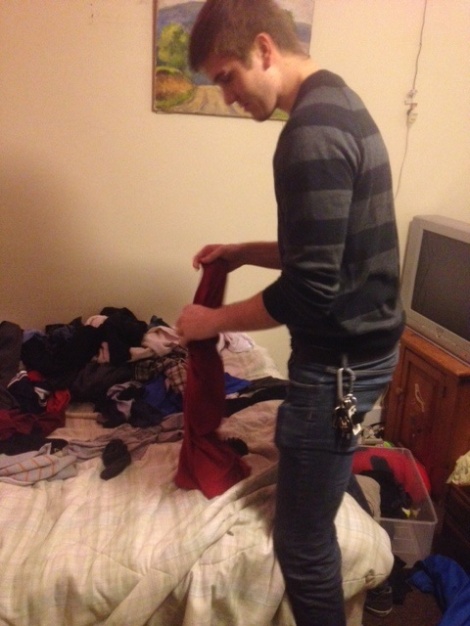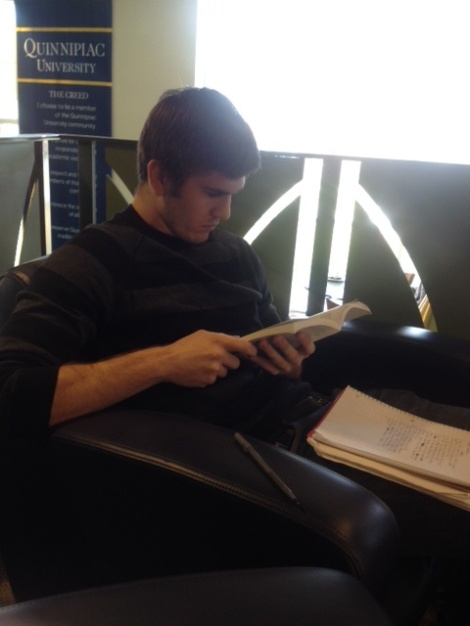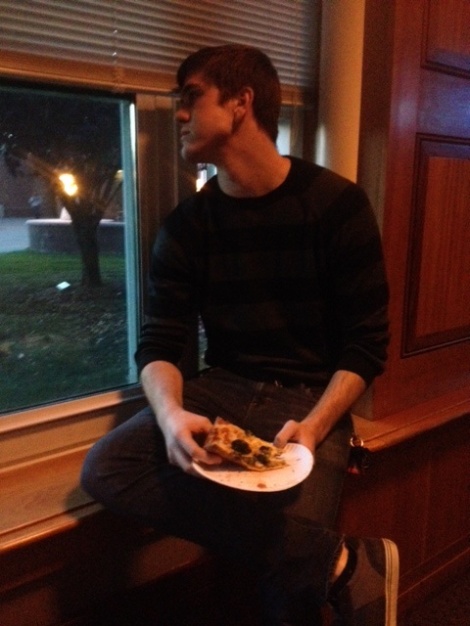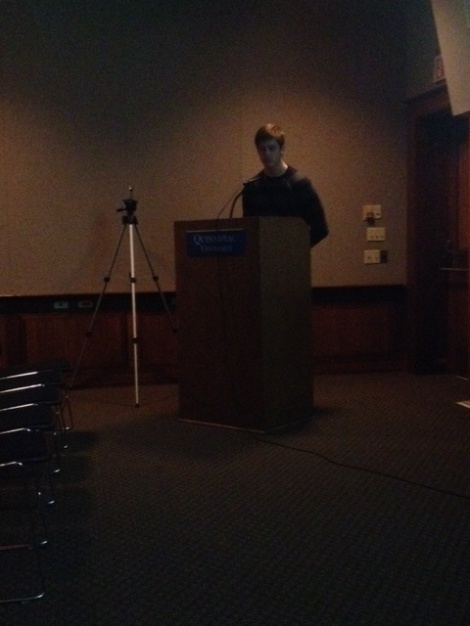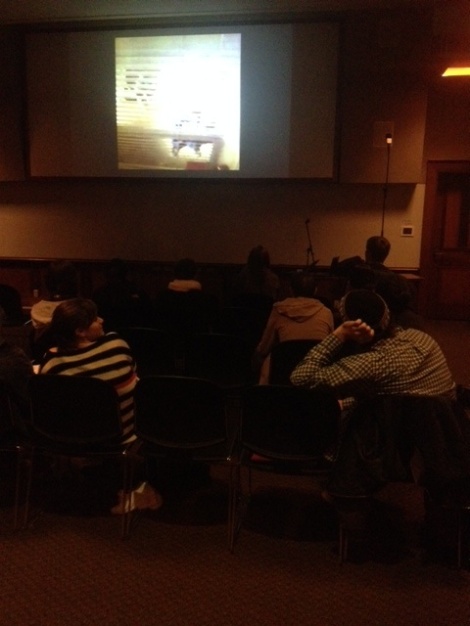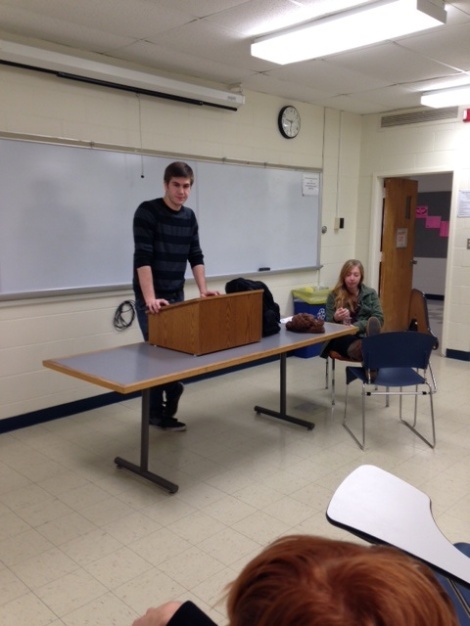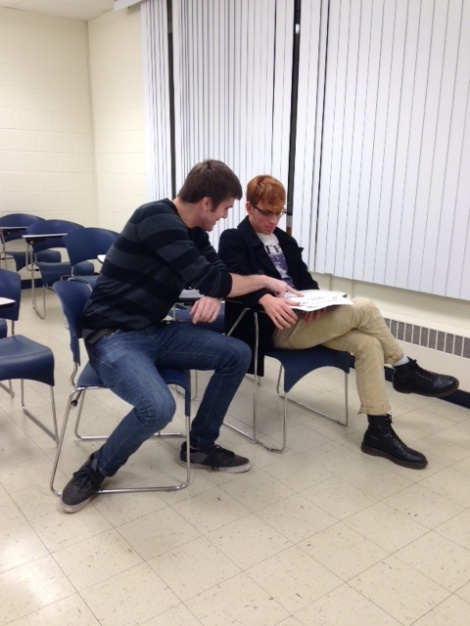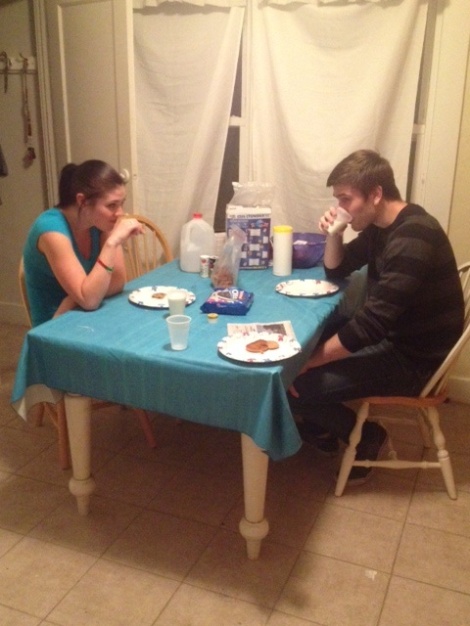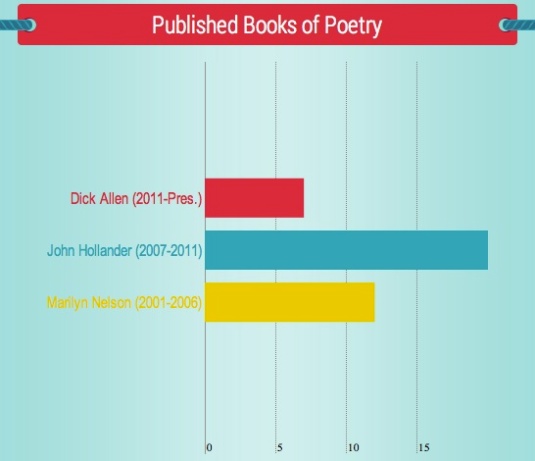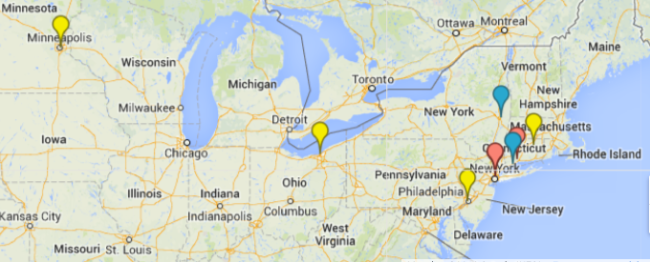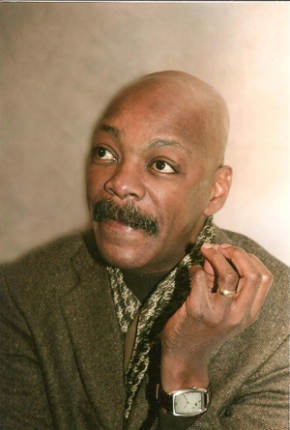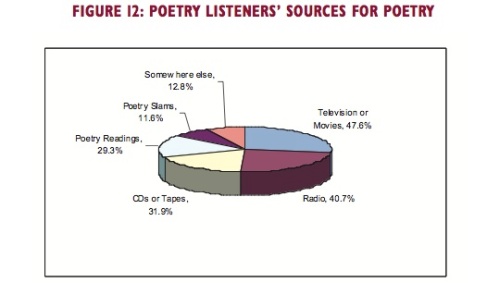The final Montage Writer’s Series of the fall semester was held before a full room on Tuesday, Dec. 3 in Quinnipiac Student Center 119. Featured reader Marissa Himbele read original poetry and fiction, and student band Oak Tree performed four songs before the night was capped off with a student story slam.
“Tonight was great,” said Quinnipiac assistant professor of English and creative writing head Ken Cormier. “It was the second time in a row we had to bother the people upstairs for more chairs, so that’s good.”
Himbele, a senior media studies major, took the stage first, reading a few poems and a story entitled “Cleaning Out the Pipes,” about a plumber that found himself cozying up with neighborhood wives.
“It was a little nerve racking, I guess because I’ve never done something like that before,” Himbele said. “But I think it’s something I needed to do if I want to be a good writer.”
Then it was Oak Tree’s turn. The band, made up of seniors Stephanie Griffin on guitar and Greg Rava on harmonica and cajon, is no stranger to the writer’s series, as Tuesday marked Oak Tree’s third appearance in the event in the last two years.
“I was looking forward to this event the whole semester,” Griffin said. “It’s showcasing more of the talent on campus that we wouldn’t know of without events like this.”
The two features were then followed by a story slam, in which competitors had seven minutes or less to tell a story from their own lives before being judged on a scale of one to 10. Senior Joe Romano took home first prize—a lawn frog and a $25 Chartwells gift certificate.
Tuesday’s attendance was high for the writer’s series, as 33 people were counted in the room during the features, with even more filing in for the story slam.
“The turnout was much more than expected, much more than usual, and I think everyone had a good time,” said Justin Goldsmith, Montage Literary & Arts Magazine Editor-in-Chief
“We have off nights where there are fewer people,” Cormier said. “It’s always a great event, but of course it’s exciting for everybody when you’re in a full room. The audience gets into it and the performers feed off that.”
Creative arts have somewhat of a muted presence at Quinnipiac, and Cormier believes the writer’s series is important as a venue for students to see their peers’ creative works as well as display their own.
“We’re here in this community, and any good community needs to have an opportunity for its creative people to feature their work,” Cormier said.

